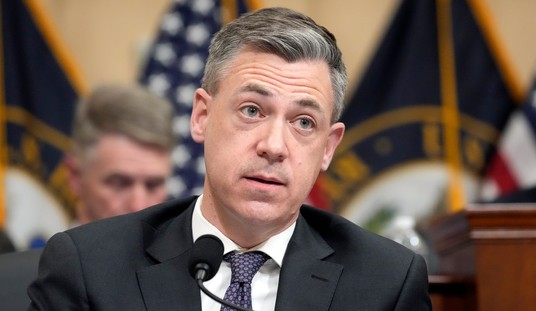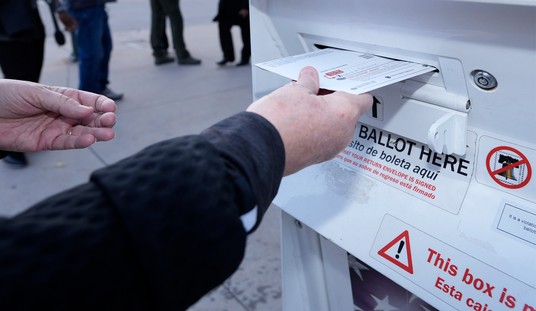The new official line of the incoming Trump-Pence administration is that the free market has failed, and we need their government-imposed solutions instead:
On Thursday, as he toured the factory floor here to take credit for saving roughly half of the 2,000 jobs Indiana stood to lose, Mr. Trump sent a message to other businesses as well that he intended to follow through on his pledges to impose stiff tariffs on imports from companies that move production overseas and ship their products back to the United States.
“This is the way it’s going to be,” Mr. Trump said in an interview with The New York Times. “Corporate America is going to have to understand that we have to take care of our workers also.”
. . . .
“I don’t want them moving out of the country without consequences,” Mr. Trump said, even if that means angering the free-market-oriented Republicans he beat in the primaries but will have to work with on Capitol Hill.
“The free market has been sorting it out and America’s been losing,” Mr. Pence added, as Mr. Trump interjected, “Every time, every time.”
What “free market” is that, Mr. Pence? The one that suffers under the crushing weight of federal regulation, with Obama setting records for the numbers of pages added to the Federal Register? The one that features some of the highest corporate tax rates in the world? That free market?
Every time government interference hampers the economy, government blames the free market and hampers it further. Harry Browne used to say:
The government is good at one thing. It knows how to break your legs, and then hand you a crutch and say: “See if it weren’t for the government, you wouldn’t be able to walk.”
If you don’t keep in mind that it is the government that hampers business in the first place, and that it is U.S. government regulation that makes our businesses fundamentally non-competitive to begin with, then actions like Trump’s can seem beneficial. But they aren’t. I wrote yesterday:
[T]he unintended consequences of government interference are not abstract. They are very real. Just ask Carrier’s competitors, who didn’t get a tax break because they haven’t threatened to move anything to Mexico.
Yet.
But they will, if they’re smart. That’s the other thing about intervention. One act of intervention encourages more. Welfare encourages people to seek benefits from government rather than by earning money through providing value to society. Corporate welfare does the same.
What I have done is an exercise in looking at the seen and unseen — a concept I have written about before. Government policy is often popular because there are obvious good effects that can be seen. But there are other effects that are unseen, and they exist too.
Kevin D. Williamson attacks the deal from a very similar perspective today at National Review:
It is a company that has competitors — competitors who employ Americans and pay taxes, just as Carrier does. These firms and their employees are put at an economic disadvantage by the subsidies paid to Carrier thanks to Trump and Pence. That means that some of these companies probably will be less profitable, and that they will not hire people they otherwise would have hired. But you’ll see no Trump press conference celebrating that. This is a case of Frédéric Bastiat’s problem of the seen vs. the unseen. The benefits are easy to see, all those sympathetic workers in Indiana. The costs are born by sympathetic workers, too, around the country, and by their families and by their neighbors. But those are widely dispersed, so they are harder to see and do not hit with the same dramatic impact.
The concept of the seen and unseen helps you see the flaw in this widespread argument: that we should not criticize Trump, because he saved Christmas for a bunch of Indiana families. It can also help you understand why government bailouts are generally bad. Think about it: under the “he saved Christmas!” argument, you could justify a huge range of government intervention. There are many businesses that fail in the United States, all over the place. Why not use taxpayer money to save all of those businesses? Think of all the Christmases that would be saved!
Most people would probably not endorse that proposal, even if they couldn’t necessarily explain the economics of why it would be a bad idea. The answer is that when businesses fail, we see the impact that has on people who are thrown out of work. What we don’t see, but which is very important, is that the business was failing because it was doing a bad job with scarce resources. The failure of the business frees up resources to be used by a business that does a better job of satisfying consumers. If all failing businesses were kept afloat, valuable resources would be tied up in losing ventures that don’t do any good for anyone, and the economy would collapse.
The fundamental issue is one of distributed intelligence. Which is better to determine how resources should be used? The distributed intelligence of the marketplace, or a centralized set of government decisionmakers? When you put it that way, the answer is obvious to most — but you have to think about it first, to frame the question in the proper way.
If you don’t understand the principles of why a general bailout of all failing business is wrong, then it’s harder to see the problem when it is done on a small and highly publicized scale. A grandstanding government official who goes around showering largesse here and there, and making sure the cameras are in tow, can win a lot of popularity — especially if he has openly declared that the free market no longer works.
P.S. If you made it to the end of the post, you’re a rare reader who is interested in economics. I don’t do these posts for the mountains of clicks they generate. Trust me: they’re not as popular as the “Who did Trump interview for a cabinet position?” style of newsy post. If you enjoy in-depth discussion of the free market, liberty, and the Constitution, you might enjoy my group the Constitutional Vanguard. In addition to my periodic newsletter on these topics, we have a private Facebook page and a private forum at my blog. If you think you might like that, you can sign up here.












Join the conversation as a VIP Member